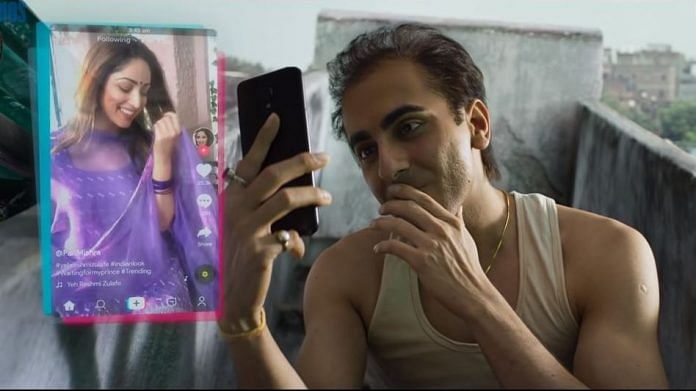Bollywood seems to be on a mission to make India, the land of regressive stereotypes and taboos, accept itself — warts and all. And its frontman, its main crusader, is Ayushmann Khurrana. This week’s release, Bala, is another story of overcoming preconceived notions, shame, and societal pressure and accepting your physical appearance as part of yourself.
While that is a great message to send out, the film falls into some hypocritical loopholes.
Balmukund ‘Bala’ Shukla (Khurrana) is a 25-year-old with a balding head who markets fairness creams to women in Kanpur. He is constantly shamed by those around him for his ever-increasing bald patch, which further pushes him into a shame spiral that results in him trying every possible hack and remedy out there.
But no amount of oils infused with mysterious herbs, cow dung, or even hair transplants work. Giving up, he finally resorts to wearing a toupee, and turns his life around. He even falls in love with the girl of his dreams, Pari (Yami Gautam), who happens to be the model for the very fairness cream he sells.
Bala’s happily ever after is threatened when he finds himself agreeing to marry Pari without actually revealing to her that he is bald. Bala’s childhood friend, Lathika (Bhumi Pednekar), whom he has made fun of for being dark-skinned all her life, worsens things by always making jokes about his baldness.
It all comes crashing down when Bala is forced to confront the love of his life, his neighbourhood and most importantly, himself, about his baldness.
The film hits all the right comedic notes. Khurrana gets free rein to bust out all his famous impressions of iconic Bollywood actors, and his delivery is flawless. The jokes are well-written and timed, and mostly in good taste. The plot is predictable but fast-moving and entertaining thanks to smart maneuvering on writer Niren Bhatt’s part.
The character arcs are also interesting to see. Bala is a smart, funny guy who wants to make it as a comedian and artiste but is highly insecure about what people think about him. His journey toward self-acceptance is frustratingly familiar and relatable.
The two female leads — Pari and Lathika — are also well-written. Pari is confident, smart and very vain. More importantly, she knows who she is and what she wants out of life. Lathika is an intelligent, capable lawyer, who understands the difficulty of being a dark-skinned woman in India. She, however, is self-assured and confident and does not seek anybody’s validation.
The three hold their own and even manage to surprise us.
Like most new-age, middle-class family comedies, the supporting cast steals the limelight with their excellent timing and acting. One such supporting character is the video app, TikTok. While a part of the film parodies the dramatic, Bollywood-themed videos that go viral on the app, there are parts of the film that seem like a series of comedy TikToks strung together.
Where it all goes wrong , however, is with Pednekar’s brown face. It is glaringly ironic that a film that preaches self-acceptance and admonishes discrimination on the basis of physical appearance, casting someone who is clearly very fair-skinned and not someone who is naturally dark-skinned.
The make-up is so obvious and in poor taste that it becomes jarring and uncomfortable to watch Pednekar spout dialogues about discrimination and shaming while sporting enough bronzer to put Donald Trump to shame. It is hard to believe the filmmakers did not think twice about this particular choice.
Another glaring loophole is part of the plot and Bala’s character arc. While he struggles with society’s rigid rules and the unbearable shame that comes with not fitting in, he is also superficial and falls for Pari based on, simply, her looks. And when she reproaches him for being bald, he is offended and saddened. The filmmakers clearly were too busy perfecting the humour and small-town touches that they forgot to look at the main plot.
Amar Kaushik’s direction is testament to the fact that he has a talent for comedy (One can also look at Stree for confirmation). The music is fun and upbeat but gives nothing too memorable, apart from the reprisal of a 90s Indie hit, Don’t Be Shy.
Last week saw a similar film, featuring a man struggling with baldness and a woman struggling with not being the conventional ideal. It is heartening to see that Bollywood is finally taking its audience’s demands seriously, with two similar films releasing the span of a week. But it still needs to learn how to treat moral stories, especially ones that talk of societal expectations set partly by films.
Humour is a great tool that many filmmakers have refined in using for these films, but no amount of bronzer can mask the hypocrisy that still lies within.
Also read: Ayushmann Khurrana’s Dream Girl starts with hilarity and ends in disappointment



